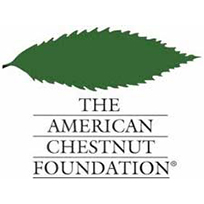As a part of its approach to sustainability, American Municipal Power, Inc. (AMP) is committed to environmental stewardship. AMP is investing in two nature-based solutions to improve the environment. First, AMP has worked with a variety of partners to reforest parts of Ohio. Secondly, AMP is promoting the efforts of its Members to support pollinator habitat and forestry.
AMP's Reforestation Projects
Within the Member footprint, AMP is working with government agencies, communities and private entities to identify, evaluate and develop appropriate reforestation projects that use the natural growth process of trees to hold (or sequester) carbon dioxide in the living wood, roots and forest soils, thus preventing its escape to the atmosphere. Trees are a nature-based approach to carbon sequestration while also providing broader ecological benefits.
Projects on Strip-mined Lands/American Chestnut
 One focus of AMP’s reforestation projects is to return former strip-mined lands to forests, which, in addition to removing carbon dioxide from the atmosphere, can provide additional benefits to local areas. These include visual aesthetics as well as improved habitat for wildlife, water quality and recreational areas. Also, AMP worked with university scientists and foresters to reestablish the American chestnut as a key species in appropriate areas. Studies have shown that one hybrid strain of the American chestnut is particularly suited to the higher soil acidity generally found on former strip-mined lands. Once ubiquitous throughout forests in the Eastern U.S., the American chestnut nearly became extinct due to a pervasive blight in the early 1900s. The American Chestnut Foundation is a leader in efforts to re-introduce the hybrids back into the historic range of the American chestnut.
One focus of AMP’s reforestation projects is to return former strip-mined lands to forests, which, in addition to removing carbon dioxide from the atmosphere, can provide additional benefits to local areas. These include visual aesthetics as well as improved habitat for wildlife, water quality and recreational areas. Also, AMP worked with university scientists and foresters to reestablish the American chestnut as a key species in appropriate areas. Studies have shown that one hybrid strain of the American chestnut is particularly suited to the higher soil acidity generally found on former strip-mined lands. Once ubiquitous throughout forests in the Eastern U.S., the American chestnut nearly became extinct due to a pervasive blight in the early 1900s. The American Chestnut Foundation is a leader in efforts to re-introduce the hybrids back into the historic range of the American chestnut.
Pollinator Efforts
According to the USDA, three-fourths of the world’s flowering plants and 35 percent of the world’s food crops depend on animal pollinators to reproduce. The USDA also cites habitat loss, disease, parasites, and environmental contaminants that have contributed to the decline of many species of pollinators (https://www.usda.gov/peoples-garden/pollinators). Utilities can play a vital role in supporting pollinators due to the amount of land they manage. AMP is currently promoting efforts from our Members as well as investigating opportunities to support habitats at one of its generation locations.
City of Hamilton Pollinator Habitats
The City of Hamilton Department of Infrastructure manages more than 20 miles of 138-kilovolt transmission lines that support the Greenup and Meldahl hydroelectric plants. In 2019, Hamilton partnered with ACRT, Inc., an independent national vegetation management consulting firm, to convert a number of plots within its transmission rights-of-way into pollinator friendly plots. The conversion of these plots is meant to help protect those transmission lines by removing existing woody growth while also creating conditions for the native seed bed to be released. The native seed bed is rich with milkweed, coneflower, ironweed and butterfly weed, which provide a habitat for butterflies, moths, bees, small mammals, turkey, deer and neotropical songbirds. These native plants also help to combat the encroachment of trees in an environmentally sound and cost-effective way, thereby reducing the maintenance costs in the transmission rights-of-way.
Since converting the plots, the Hamilton Department of Infrastructure has been working with ACRT, Inc., to study the area and determine how well it is supporting monarch and pollinator species. Monitoring of the pollinator sites will continue through 2029.
The City of Hamilton also has multiple pollinator gardens throughout the city.
Other Member Highlights
Tree City USA Certified Members
| Arcadia |
Lebanon |
Orrville |
| Bowling Green |
Lehighton |
Paducah |
| Brewster |
Lewes (DEMEC) |
Pemberville |
| Bryan |
Martinsville |
Piqua |
| Cleveland |
Mifflinburg |
Schuylkill Haven |
| Coldwater |
Milan |
Shelby |
| Columbus |
Minster |
St. Clairsville |
| Cuyahoga Falls |
Milford (DEMEC) |
St. Marys |
| Danville |
Monroeville |
Tipp City |
| Dover |
Montpelier |
Toledo |
| Edgerton |
Mifflinburg |
Versailles |
| Elmore |
Napoleon |
Wadsworth |
| Front Royal |
Newark (DEMEC) |
Wapakoneta |
| Hamilton |
New Castle (DEMEC) |
Westerville |
| Hillsdale |
Oak Harbor |
|
| Hudson |
Oberlin |
|
Bee City USA Affiliated Members
| Berlin, Md. |
| Martinsville |
| Shelby |
| Wellington |